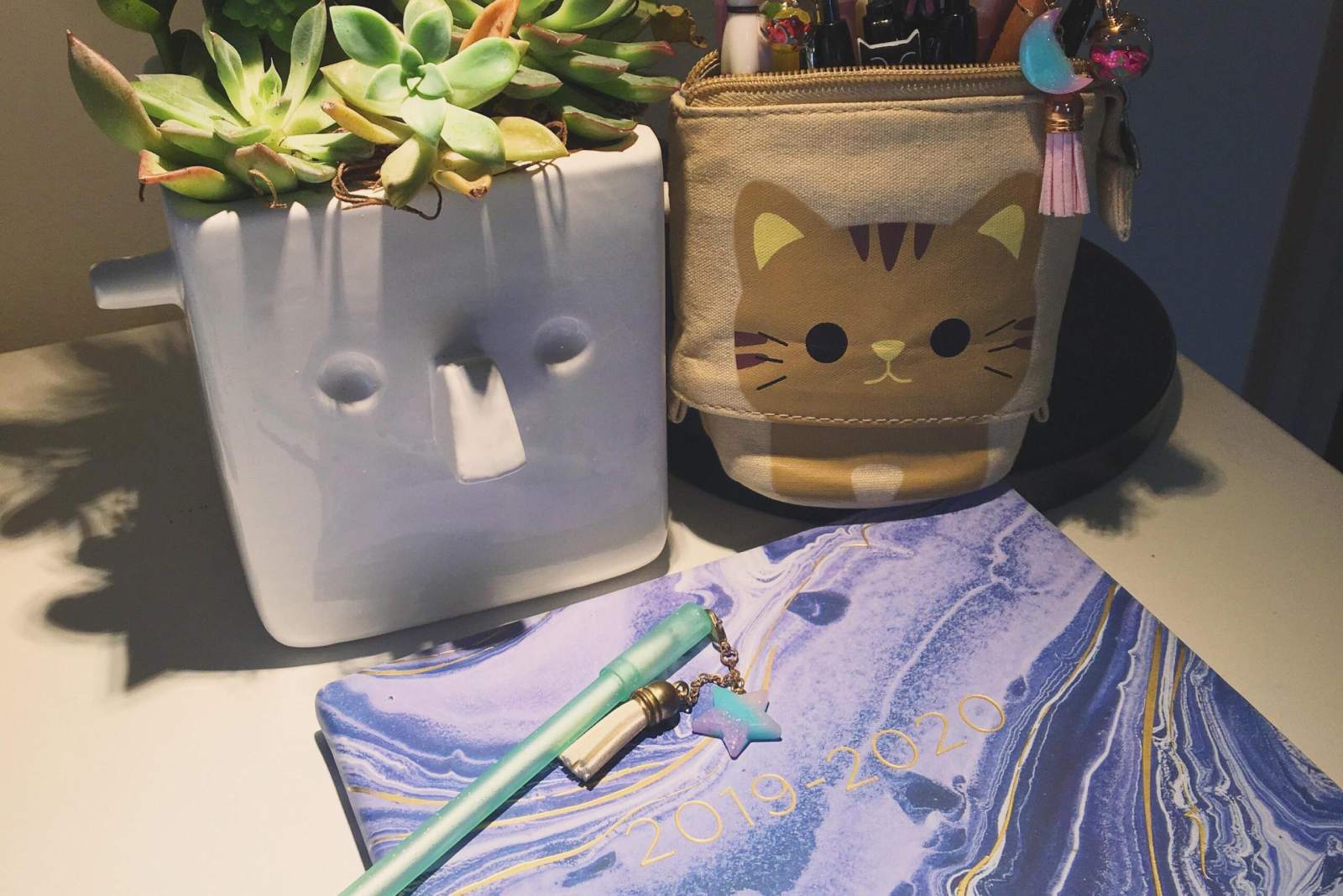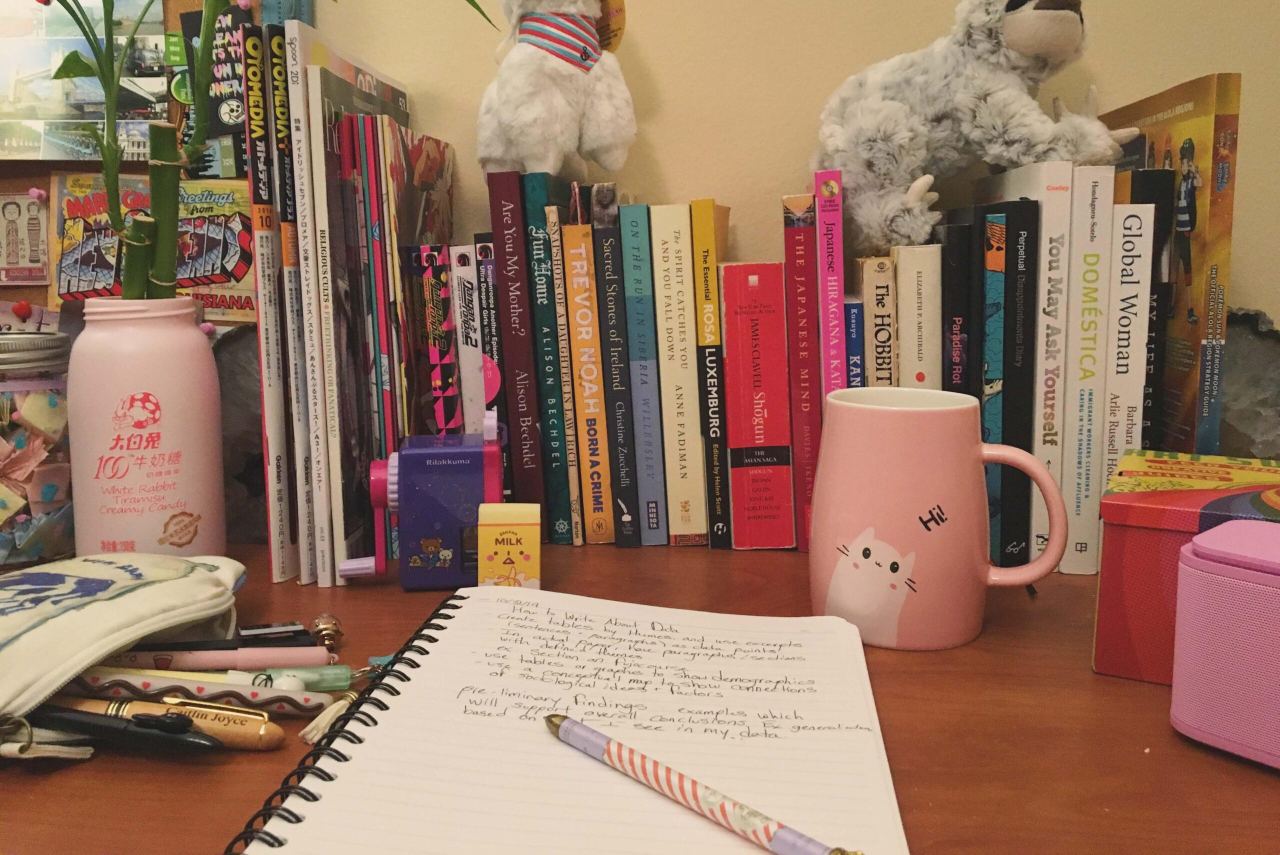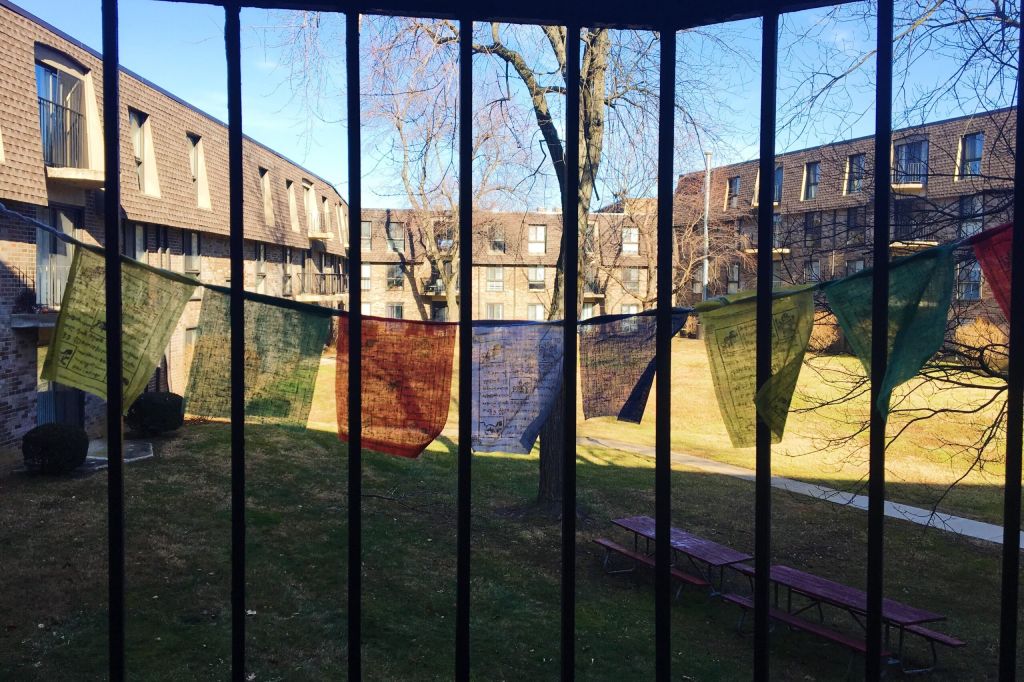Unlike many of my peers, the written component of Senior Capstone was due at the end of the fall semester instead of closer to graduation. While I was certainly not a fan of having to cram my thesis work into a single semester instead of spreading it throughout the year, this means my final semester at Arcadia is relatively chill.

However, since many of my fellow seniors are just now getting into the grind of writing, here are five tips that helped me complete my thesis:
1.Use a planner.
While I believe that a planner is a must for any college student, my planner was a crucial factor in helping me remember due dates, events, and my daunting “to-do” lists. The planner that I use has ample space to write down what I need to accomplish every day, as well as a section for reminders and my overall goal of the week. This was immensely helpful as I could keep myself on track for my daily tasks, as well as remember deadlines approaching further in the month.
While some may use planners to assist them just with their academic life, my planner also contains reminders of upcoming social events, such as when I attended the Overwatch League Grand Finals or the AnimeNYC convention. By remembering when I had activities planned outside of class, I had a better understanding of how much free time I could utilize toward working on my thesis, so I didn’t end up rushing to get something done at the last minute.
If you work toward having a healthy mind and body, completing your senior thesis will be much less of an arduous task.
– Caitlin Joyce
2. Cultivate your ideal writing environment.
While understanding your own studying style is important for students of any age, if you’re a senior facing the problem of finding a routine to get writing, it’s better late than never! Cultivating your ideal environment, which helps you get into the writing mindset, was an important step for me to start seeing progress on my paper. The difficult thing is, I can’t tell you where to find your perfect writing environment—this has to be found by you!

For me, the two defining aspects are location and sound level. Some people enjoy writing in the library where it’s quiet, some enjoy writing in places like cafes where there is ambient white noise. Personally, I find it difficult to write anywhere outside of the comfort of my own living room couch. I don’t like complete silence, but I also don’t like when the TV is on for background noise either (I will pay attention to whatever is on rather than writing).
My perfect environment for reaching that dreaded word count is putting on instrumental music, such as the iconic radio “Lofi hip hop – beats to relax/study to” on YouTube and Spotify, or finding piano covers of my favorite pop songs. The lyricless music keeps my mind on the words I’m putting on the page, and the tempo of the music helps me relax—but not to the point of taking a nap.
Experiment with locations and noise level to see what your brain likes best!
3. Work with friends.
My professor for my senior thesis class assigned a peer review project, yet afterward, I did not feel wholly confident in my work. While assigned peer review projects can be useful, it’s only as helpful as the amount of work your partner puts into the assignment. I’m sure that at least once in every student’s life, they have received a peer review that simply said, “It’s good.” Not helpful.
What a few of my peers and I decided to do is hold peer review sessions among ourselves outside of class, as we were familiar with each other’s topics and trusted one another to give detailed and thoughtful review of our capstone writing. Because we were friends, it was less awkward to give constructive criticism and honestly lay out any flaws we saw in each other’s writing. After multiple nights staying after class or working in a conference room in Easton until 10 p.m. with a group of peers, I felt considerably more confident in my thesis.
4. Have a thesis notebook.
I typically have one notebook, which I use for all of my courses, but one change I implemented last semester was buying a notebook specifically for thesis-related information and planning. Aside from the notes I took in my senior seminar, I used the notebook for my own brainstorming and outlines. It was super convenient to have all of my thesis information contained in a single book, rather than having to flip between unrelated notes to find what I needed. As a side note, I recommend getting a fun design for your thesis notebook—mine had crocodiles doing mundane activities like drinking coffee and reading a newspaper, so it made me smile on the days where I otherwise wanted to hit my forehead on my keyboard.

Tibetan prayer flags, which are supposed to spread positivity and well wishes to neighbors with the wind.
5. Take care of yourself.
When people read the word “self-care,” they may think of using a face mask or taking a bubble bath, but in this context, I mean it in the most simple sense of the word. Remember to make time for meals, drinking water, and getting sleep. I was notorious for drinking more coffee than water, but this was a habit I needed to break while writing my thesis. While coffee culture is something vital to my soul, a cup of Joe is not going to magically cure your mental burnout, especially if you’re dehydrated to begin with.
It’s vitally important that you take care of your physiological needs like hydration and hunger before you accomplish the mental tasks on your to-do list. While this may seem like common sense, I’ve found that it’s something many students (including myself) tend to forget. While our society may teach us to sacrifice our health, physical and mental, for the sake of success—I’m here to say that nothing takes importance over your own wellbeing. If you work toward having a healthy mind and body, completing your senior thesis will be much less of an arduous task.



